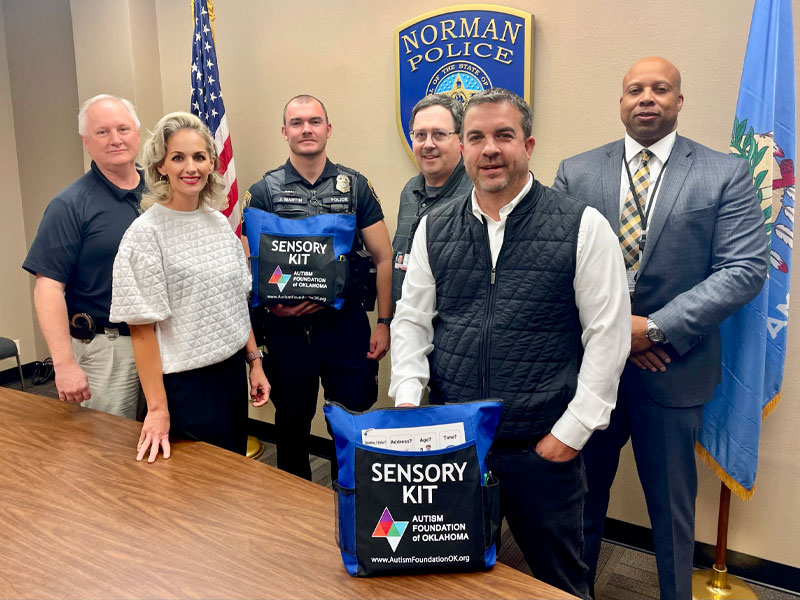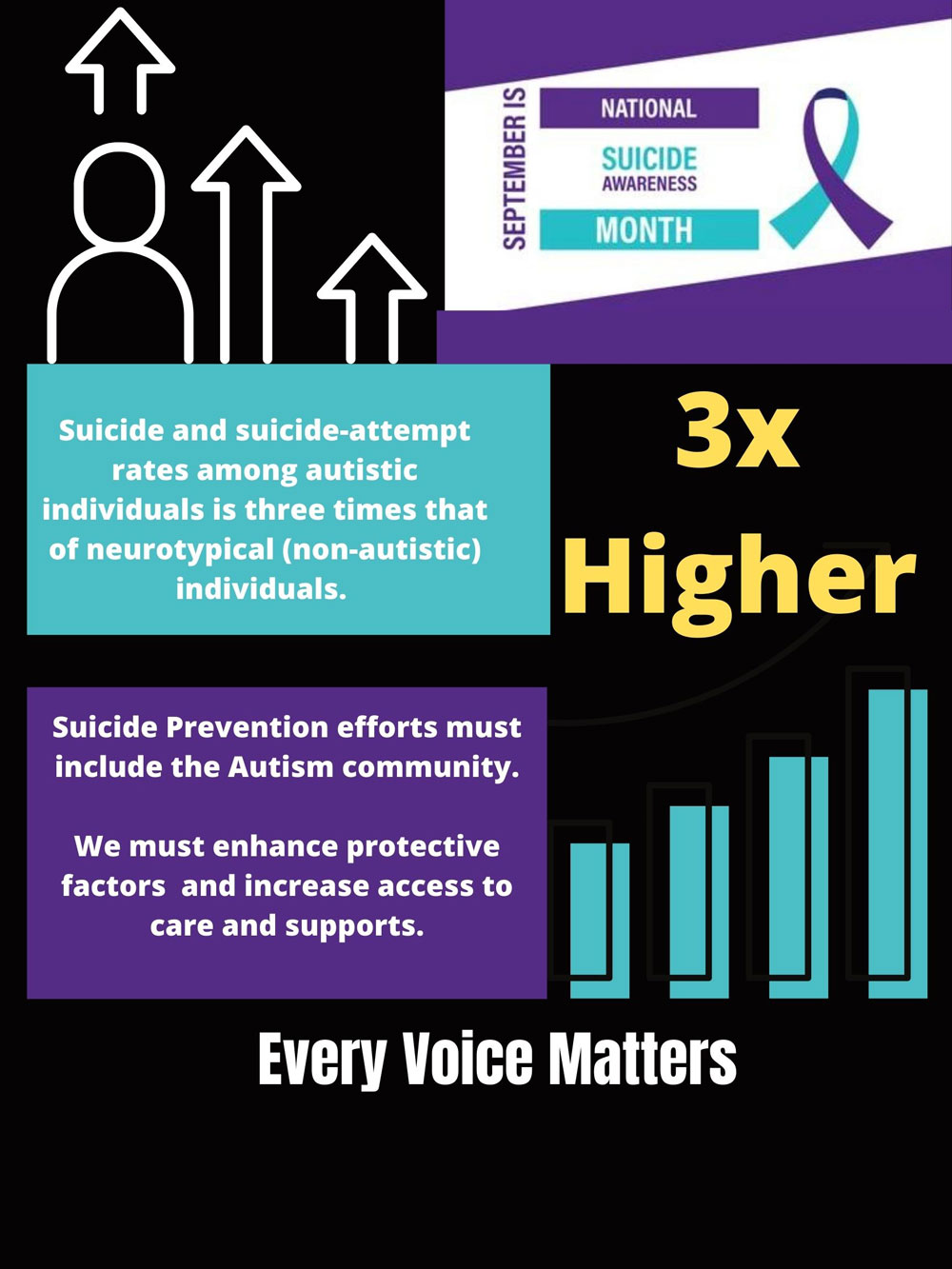
With support from local and national partners, the Autism Foundation of Oklahoma (AFO) now offers sensory kits for first responders, businesses, and community organizations to better serve Oklahomans on the autism spectrum.
Research shows that sensory kits can effectively increase critical communication and comfort for individuals with autism and other special needs in new and high-stress situations. AFO’s sensory kits contain a weighted lap pad, noise-canceling headphones, sunglasses, picture communication cards, activity books, a notepad and pen, and several handheld fidgets for all ages.
AFO recently received several grants totaling $6,500 from Walmart stores in Norman, Moore, Mustang, and Newcastle. Executive Director Emily Scott credits Brandan Branum, General Manager of store #7294 in Norman, for helping AFO turn an idea into reality, “Brandan played a pivotal role in helping AFO get our sensory kits out into the community. I called his store last summer to request a single product donation, and he did us one better by sharing our story with his colleagues.”
Branum had one small request of AFO when the kits were ready, “I asked whether our store’s local police department could receive a kit. Many of our customers have a loved one with autism. I have a child on the spectrum, and my wife is an autism therapist. Anything we can do to help our local first responders better assist those with special needs is a good thing,” said Branum.
“After months of navigating supply chain issues and shipment delays, it was a great feeling to finally call Brandan back and invite him to help us donate kits to Norman Police,” said Scott. “We wanted him to see in-person what he helped kick-start.”
“We are grateful for the generosity of our community partners like the Autism Foundation of Oklahoma and Walmart. These sensory kits provide an additional resource for our officers when they contact individuals with autism or other special needs. Resources such as these are crucial for helping all individuals in need during an emergency or high-stress situation and the steps that follow. We hope to be able to expand the program and increase the number of kits in patrol vehicles and interview rooms moving forward to ensure an inclusive experience.” – Chief Kevin Foster
In addition to Walmart, AFO has received gifts from Baker Speech Clinic, the Masonic Charity Foundation of Oklahoma, MUDD Printing, and the St. Louis Cardinals for this project. The sensory sits are available for purchase on AFO’s website.

